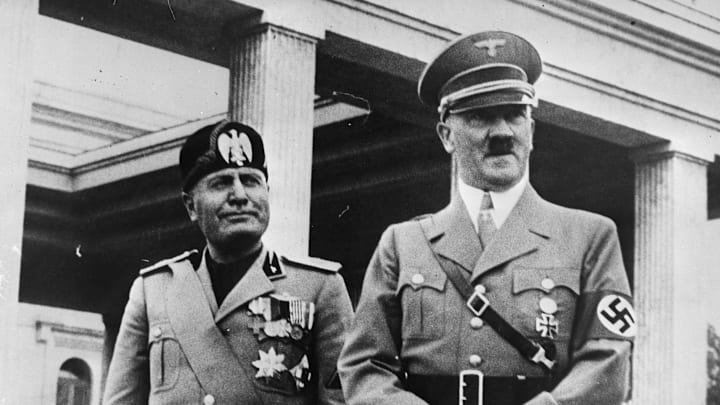It's incredibly hard to fully identify fascism in a historical context, much less a current one, but that doesn't mean it's impossible. Similarly, it's hard to get everyone on the same page as to what the word even means. The scholars I drew on for this breakdown all had different lists, sometimes in direct contradiction with one another. However, these eight traits are incredibly common, and they are relatively easy to identify.
Is any leader who references religion or mythology a fascist? Of course not. But if they use that to make an enemy, and if they encourage violence against that enemy, it's a pretty good sign. It may not be possible to say who is and isn't a fascist until it's too late, but it's worth at least considering along the way. Historical fascist leaders rose to power by popular choice as much as they did by military force.
Simply existing in a democracy does not guarantee freedom. It requires a good-faith attempt to know the facts and heed the warnings of history. It also requires moderation in raising the alarm. Just as the classic boy who cried wolf found that people had become numb to his shouts when the real threat came, "Hitler" and "fascist" have become so common that most people ignore them.
My entreaty is that you don't just accept when anybody tells you somebody is a fascist. Hear the accusation, research the person's words and actions, and see if the signs are more present than they have been in the past. Proceed accordingly.
Sources to read for further exploration:
Luis Britto García, Fascismo
Umberto Eco, Ur-Fascism
Laurence W. Britt, Fascism Anyone?
Hannah Arendt, The Origins of Totalitarianism
Stanley G. Payne, A History of Fascism, 1914-1945
Emilio Gentile, The Sacralization of Politics in Fascist Italy
Milton Mayer, They Thought They Were Free: The Germans, 1933-45
Ian Kershaw, To Hell and Back: Europe 1914–1949
Have questions about history, trivia, or anything else? Send an email toaskeverest@fansided.com and we might answer here on the site!
